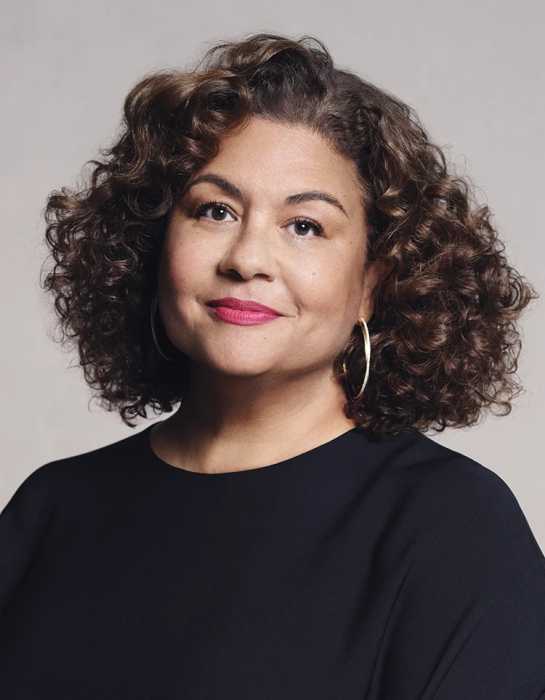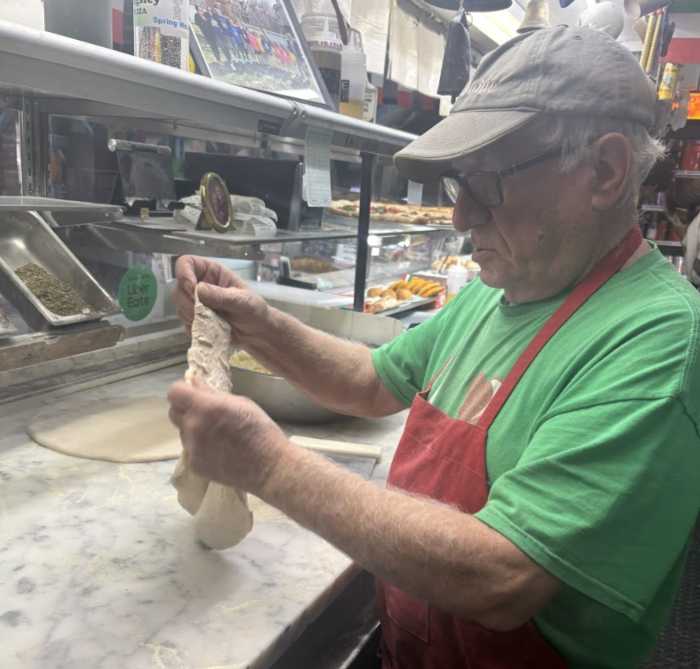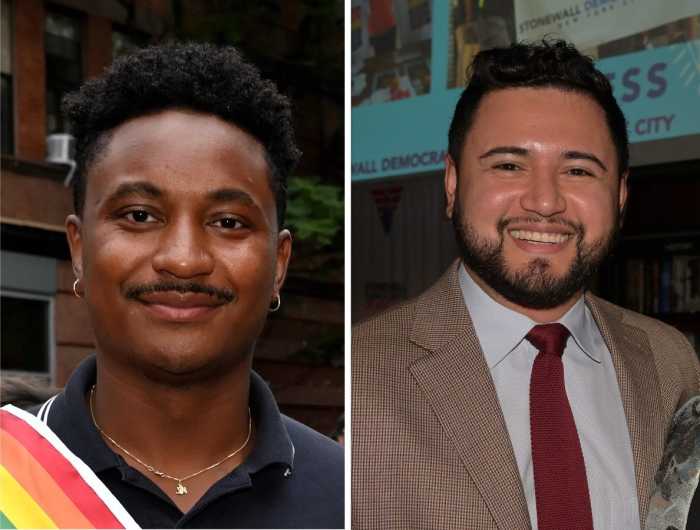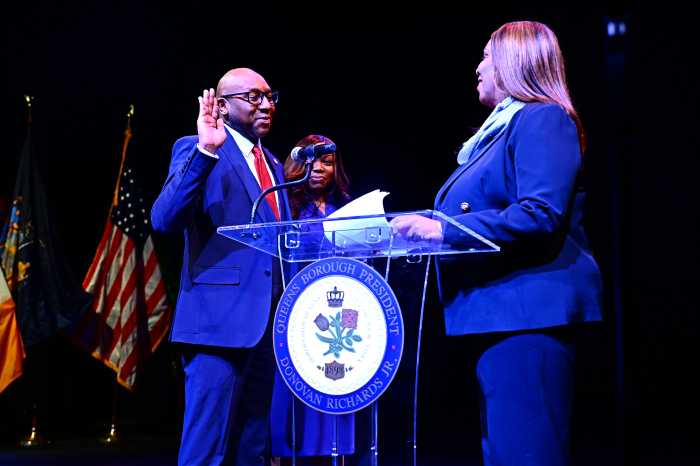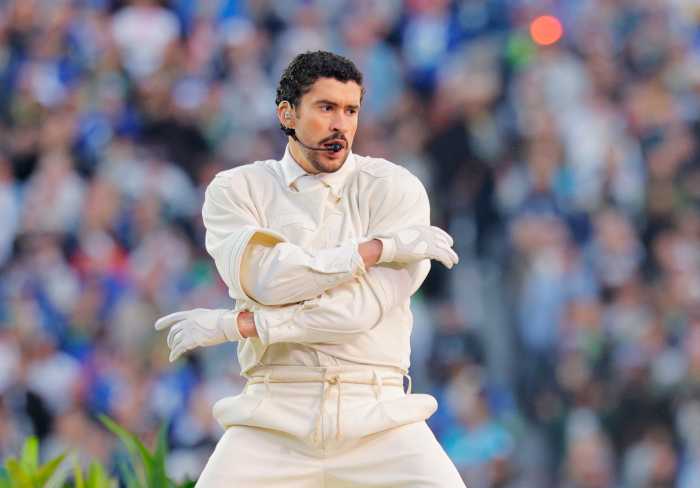Elizabeth Alexander is a poet, scholar, and cultural advocate who currently serves as president of the Mellon Foundation, the nation’s largest funder of the arts, culture, and humanities. She is a two-time finalist for the Pulitzer Prize and has been recognized as one of Time’s 100 Most Influential People.
New York boasts a vast and dynamic education system, supported by a dedicated network of exemplary leaders. The 2024 amNY Metro & PoliticsNY Power Players in Education list looks to honor these dedicated leaders who champion progress and success in all forms of education. From presidents of educational institutions to directors of nonprofits to policymakers, our 2024 Power Players in Education are at the forefront of shaping New York’s education landscape and guiding students towards a bright future.

K.L. Allen
Regional Vice President, Western Governors University

Dr. K. L. Allen is the regional vice president of the Northeast Region for Western Governors University. Initially from North Carolina, Dr. Allen is highly regarded and passionate about higher ed. His transformative vision for the future of higher ed is inspiring and hopeful. His vision for a better future is a dream and a passion grounded in education, community engagement, and empowering others through education.
How can policymakers support New York’s students and educators?
Policymakers can support New York’s students and educators by increasing funding for schools, ensuring equitable access to resources, and promoting mental health support. They should also prioritize reducing class sizes, providing professional development for teachers, and expanding technology access. Strengthening partnerships between schools, families, and communities will enhance student success. Additionally, policies that address systemic inequalities and support diverse learning needs are essential to creating an inclusive and thriving educational environment.
What was your favorite moment or experience in your own education?
My favorite educational moments were when a teacher introduced a complex concept that I struggled with but mastered through persistence. The breakthrough moment, when everything clicked, gave me a sense of accomplishment and boosted my confidence. It taught me the importance of resilience and that challenges are growth opportunities. That experience changed how I approached learning, making me more curious and determined to succeed.
What is the best advice you have received from a mentor?
The best advice I received from a mentor was to focus on building strong relationships. They emphasized that success is not just about individual achievements but also about the connections we make along the way. This insight encouraged me to prioritize collaboration, listen actively, and support others. It transformed my approach to teamwork and leadership, reminding me that fostering genuine relationships creates a positive environment where everyone can thrive and contribute effectively.
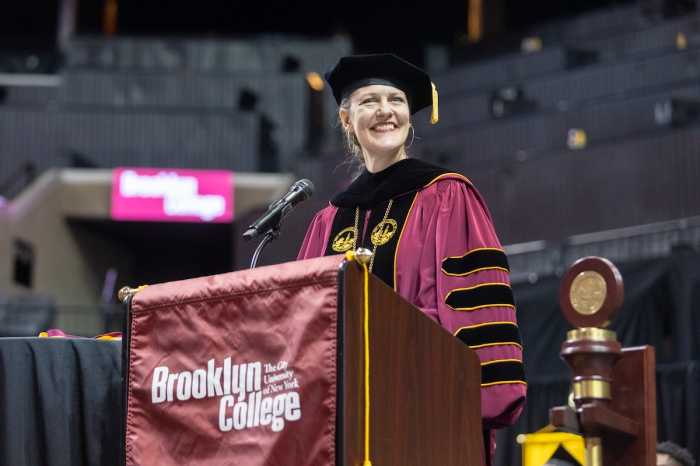
Michelle J. Anderson
President, Brooklyn College, CUNY

Under President Michelle J. Anderson’s leadership, Brooklyn College has soared. It launched The Tow Mentoring Initiative, the Brooklyn College Center for Cancer Research, and the Institute on Gender, Law, and Transformative Peace. It increased graduation rates and faculty diversity while expanding funding for internships. The college also earned excellent rankings, including the number one “Most Ethnically Diverse College” in the northeast (U.S. News & World Report) and top 25 among “Colleges with the Highest Payoff” (Forbes).
How can policymakers support New York’s students and educators?
A college education is critical to students’ economic success, but the vast majority of New Yorkers do not have the funds to attend a private college. Policymakers can support New York’s students by investing in public higher education, which offers outstanding and accessible education. The Wall Street Journal ranked Brooklyn College 5th among the “Top U.S. Colleges Offering the Best Value for 2025,” and CUNY colleges won five of the list’s top 10 slots.
What was your favorite moment or experience in your own education?
I love teaching, and teaching will always be my favorite experience in my own education. No matter the subject, my understanding of the texts I assign has been refined and often transformed by a deep engagement with students. It is enlightening to see a topic fresh through the eyes of a person new to it. Anything is possible. The insight students have brought to these academic conversations has been revelatory, and I am deeply grateful.
What is the best advice you have received from a mentor?
A mentor told me early in my career: “There is no perfect place to work, but you can do good work anywhere if you believe in the mission of the job. Wherever you are, you will face opportunities to change lives for the better. You should try to make a positive difference for the people you serve. Take pride in leaving the place better than you found it.” I try to live by this advice.

Melissa Aviles-Ramos
Chancellor, New York City Public Schools

Melissa Aviles-Ramos is chancellor of New York City Public Schools, the largest school system in the nation. She was formerly the deputy chancellor of family and community engagement and external affairs, as well as the chief of staff to former Chancellor David C. Banks. Chancellor Aviles-Ramos began her career as an English teacher and NYC teaching fellow in the Bronx. She later served as a principal and acting superintendent.
How can policymakers support New York’s students and educators?
As an educator and a mom, my first consideration when making any decision is our kids. How will a policy or initiative impact them? Student-centered decision making is a huge part of how I lead. But too often, amid lots of competing priorities and stakeholders, it’s easy for adults to lose sight of our children, the reason why we do this work. I encourage our policymakers to keep them front and center when making decisions.
What was your favorite moment or experience in your own education?
My favorite moment was graduating college. It had been a tough four years; I’d been a full-time student while also working multiple jobs. I worried I might not graduate on time. But when I accepted that diploma and saw the look on my mom and siblings’ faces, I was overwhelmed with joy and pride. I could see how by earning my degree, I had fulfilled not only my dreams, but theirs as well.
What is the best advice you have received from a mentor?
I’ve been fortunate to have excellent mentors throughout my life. Most recently, though, I’ve been encouraged to really look in the mirror – to reflect on my growth and embrace my leadership. I’ve served as a leader in NYCPS for many years but obviously never at the helm of the entire system. I’m excited and ready to take on this responsibility, and I want to be thoughtful about what leadership looks like in this role.
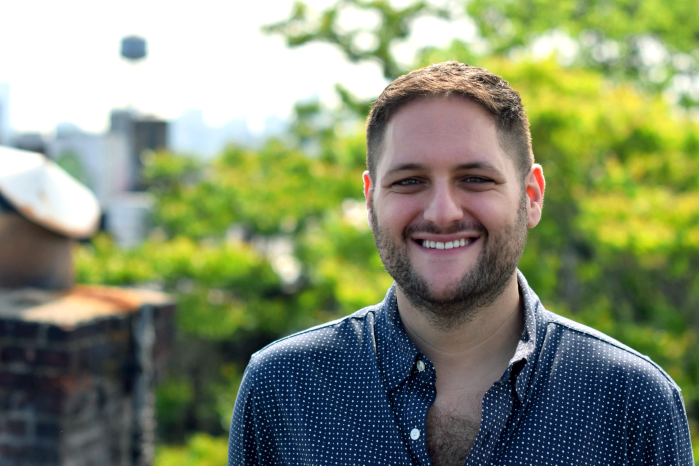
David Belsky
Founder and CEO, Good Rebellion

David Belsky is the founder and CEO of Good Rebellion, a strategy and communications agency for purpose-driven partners. For nearly a decade, David drove marketing and advocacy at The State University of New York system. At the NYC Department of Education’s Fund for Public Schools, he built a new communications function from the ground up. A native New Yorker, David attended public schools, earned his B.A. from Binghamton University, and MPA from the University at Albany.
How can policymakers support New York’s students and educators?
New York students and educators need to be ahead of the shifting landscape of academia. This means embracing the policies and resources necessary to equip classrooms and institutions with new approaches to meeting consumer demands. This can range from innovative degree and credential programs that diverge from the typical four-year-long path to artificial intelligence tools and strategies that can make higher education more efficient, effective, and essential.
What was your favorite moment or experience in your own education?
In elementary school, I was blessed to have a fantastic teacher – Marie Sancilio, if she’s reading – who introduced me to my love for technology. She saw a desire to learn more about what was new and exciting, helping me to understand how we can use these tools to make life better. I’ve never lost the spark she lit, it’s guided me through my education and career. A testament to the power of great teachers.
What is the best advice you have received from a mentor?
Laugh more. When I was a younger professional, I would hear that I laughed too much in meetings, and it made me appear less professional. But later on in my career, a mentor pointed out that laughter was actually a powerful tool. Not only can it disarm a tense room, but it also serves as a reminder that no matter what we are working on, we can enjoy it. Life doesn’t need to be so difficult.
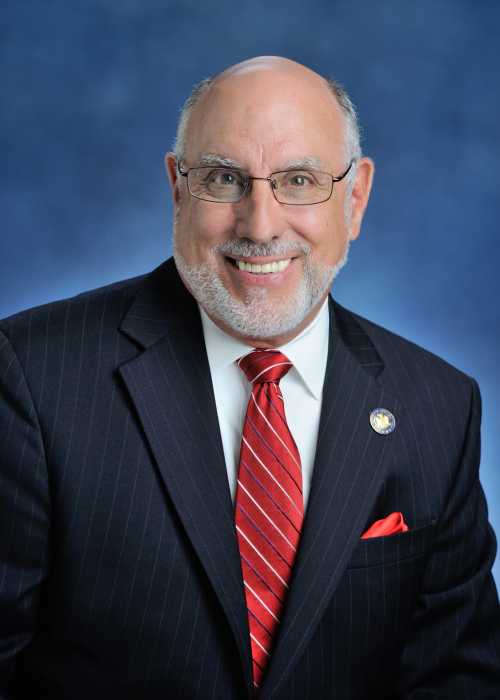
Michael Benedetto
Assembly Member, New York State Assembly | Chair, New York State Assembly Committee on Education

Michael Benedetto represents District 82 in the New York State Assembly, where he has also served as chair of the Education Committee since 2019. During his time as committee chair, Assembly Member Benedetto has sponsored and passed historic APPR legislation and has presided over hearings regarding the admissions requirements of New York City Specialized High Schools. Assembly Member Benedetto graduated from Iona College with a B.A. degree in history/education and an M.A. in social studies/education.

Arlen Benjamin-Gomez
Executive Director, EdTrust-New York

With 20 years of experience, Arlen-Benjamin Gomez has advanced initiatives around district and school integration, culturally responsive and sustaining education, and legal rights to education. Previously, she was the senior director of legal strategy at Columbia University’s Center for Public Research and Leadership, a fellow at the Regents Research Fund, and a staff attorney at Advocates for Children. Arlen holds a J.D. from NYU and a B.A. from UCLA.
How can policymakers support New York’s students and educators?
Policymakers are often looking for a silver bullet. A simple one-size-fits-all solution. But our education system is a product of our own making. Root causes of racism, classism, and oppression are embedded in the way we do schooling. In that context, we need to embrace the fact that good policymaking is complex. And we will not get it right if we do not first and foremost engage students, educators and families in shaping policy.
What was your favorite moment or experience in your own education?
Going to public schools with educators of color from many backgrounds, including mine. My U.S. history teacher was Native American. He ensured we spent a semester learning about genocide and slavery. My world history teacher was Black. Her curriculum was non-Eurocentric with a focus on history in Africa, Asia, and Latin America. My social studies teacher was Latina. We read Cisneros’s House on Mango Street and discussed our experiences of otherness and struggles with patriarchy.
What is the best advice you have received from a mentor?
You have to learn how to cut through the noise. Sometimes, the noise comes because you are shaking up the status quo. During those times, it is important to stay grounded in who you are and what you are fighting for. You cannot make an impact without disrupting the status quo. Other times, the noise comes because it is feedback. During those times, it is important to listen, learn, and adapt your approach accordingly.
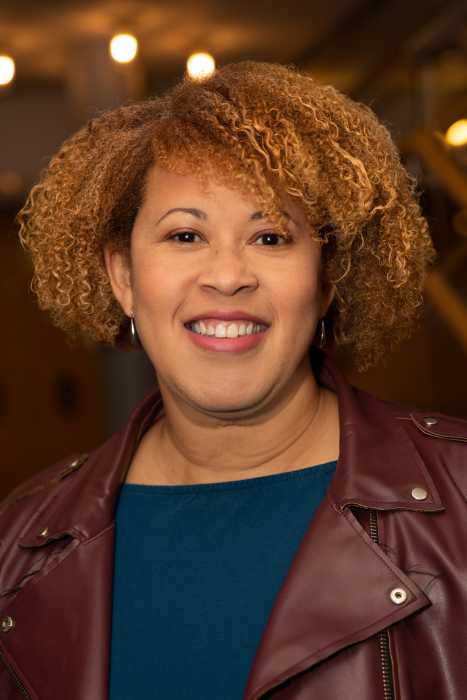
Courtney J. Boddie
Vice President of Education & School Engagement, New 42/New Victory Theater

As vice president of education and school engagement for New Victory/New 42, Courtney J. Boddie oversees programs serving nearly 200 NYC schools and summer programs. Under her leadership, the organization maintains the $2 student ticket price and provides free arts engagement to school partners. She has led arts access initiatives including New Victory Dance and the GIVE resource guide. In 2021 Ms. Boddie was named a “Notable Black Leader and Executive” by Crain’s New York.
How can policymakers support New York’s students and educators?
NYCPS is the largest school system in the US and was not built under equitable structures. Policymakers can support New York’s students and educators by redistributing power and resources to ensure that every student has everything they need for a brighter future, including access to the arts. New Victory research shows that performing arts engagement increases students’ ability to expand their worldview, build confidence, grow in language acquisition and have hope for their own futures.
What was your favorite moment or experience in your own education?
I was fortunate to attend an arts-full school. In a TV production course, I translated my love of theater to create a fully realized TV pilot. It was a comedy news program à la The Daily Show, where I wrote the script, cast my friends and directed everything from the performers to my classmates as the camera crew and editing team. It built my own agency and gave me a ton of confidence.
What is the best advice you have received from a mentor?
“Look up” was a simple but effective piece of advice I received from a dear mentor of mine. It means that in order to be an effective leader I must continue to expand my own view and pay attention to what’s taking place around me to not only contextualize my own scope of work but also keep myself on a path of continuous learning, growing my own vision and creativity.
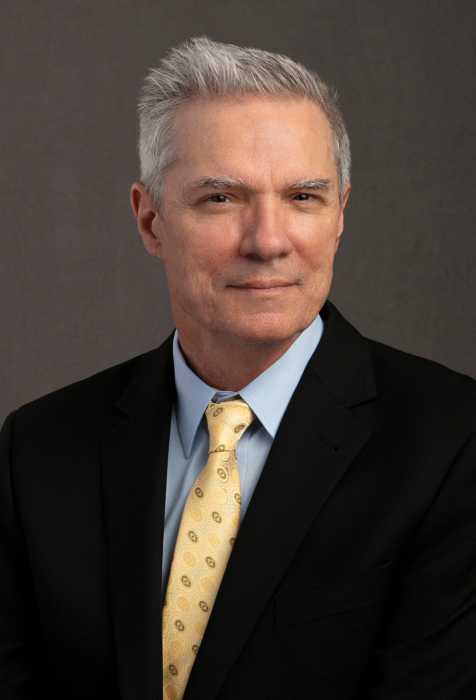
Donald Boomgaarden
President, St. Joseph's University, New York

Dr. Boomgaarden is the eighth president of St. Joseph’s University, New York. Dr. Boomgaarden’s commitment to the University’s mission is evident in the meaningful initiatives he continues to move forward. Under his leadership, the University routinely adds new academic programs and makes improvements to its physical campuses, including the construction of a state-of-the-art multi-million dollar student center on the Long Island campus in Patchogue. He also makes frequent media appearances as an industry leader.
How can policymakers support New York’s students and educators?
By recognizing the importance of private institutions in the State. SUNY and CUNY are important parts of NY’s higher education landscape, but there are over 100 independent colleges and universities in the state, educating nearly 500,000 students annually. There should be appropriate recognition and support for these private institutions, not only in the form of tuition assistance for students but also in the form of grants to further the research work of faculty members.
What was your favorite moment or experience in your own education?
My favorite moment in my own education was winning a Fulbright grant to study for a year at the University of Vienna, and then being able to remain for a second year to complete research on my doctoral dissertation.
What is the best advice you have received from a mentor?
My favorite piece of advice came from the late Fr. Harold Ridley, SJ, former president at Loyola University Maryland. I came to him with a particularly complex case involving a student who was scheduled to be expelled, but I felt the rationale behind the expulsion was tenuous. I asked him if we could make an exception. His response was “Don, of course, we are here to make exceptions. Knowing when to make them is our job.”
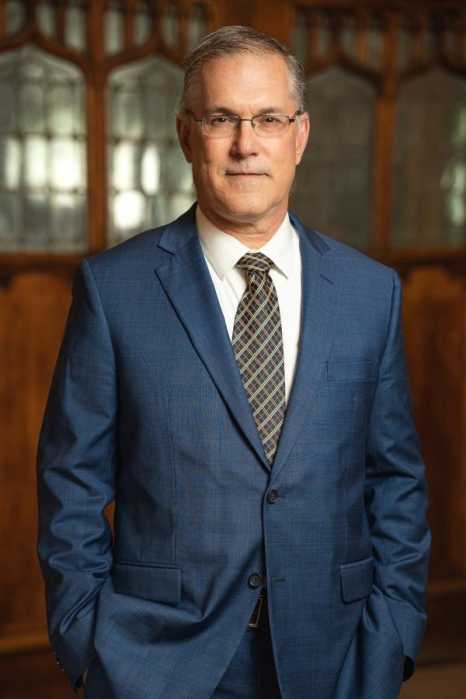
Vince Boudreau
President, The City College of New York, CUNY

Vincent Boudreau was appointed president of The City College of New York by the Board of Trustees of The City University of New York on December 4, 2017. Prior to that, he served as the founding dean of the Colin Powell School for Civic and Global Leadership at CCNY from 2013 through 2016. From 2002 through 2013, he served as the founding director of the Colin Powell School for Civic and Global Leadership at CCNY.
How can policymakers support New York’s students and educators?
By more clearly linking city and state investments in economic development to the work of colleges, policymakers can sharpen opportunities for educational institutions to tune curricular offerings to the requirements of the labor market. And by more clearly aligning government and college officials in their efforts to navigate the challenging terrain of First Amendment protections and non-discrimination obligations.
What was your favorite moment or experience in your own education?
The opportunity to do fieldwork in the Philippines during the tumultuous transition from dictatorship to democracy as I researched my dissertation on social protests.
What is the best advice you have received from a mentor?
General Colin Powell always said that leadership had three elements: developing and communicating a clear vision; allocating responsibility for the implementation of that vision, and holding people accountable for those responsibilities.


